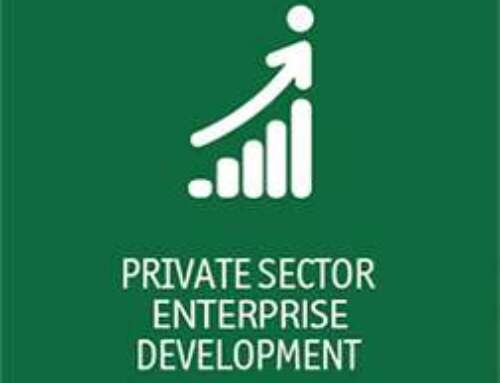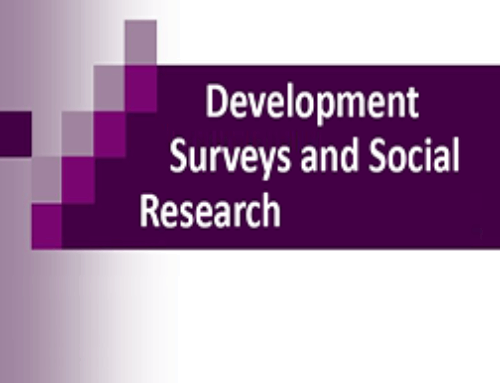THE WORLD BANK. NEPAL-NATIONAL MULTI-TIER FRAMEWORK ENERGY ACCESS HOUSEHOLD ENERGY SURVEY 2017-2018
The Energy Sector Management Assistance Program (ESMAP) – World Bank, in consultation with multiple development partners has developed the Multi-tier Framework (MTF) for 15 countries including Nepal to monitor and evaluate energy by following a multidimensional approach. As a starting point, ESMAP-World Bank, in collaboration with SE4ALL, will carry out household surveys in these 15 countries to establish each country’s baseline for measuring progress toward the universal energy access goals. Moreover, the survey in Nepal will also focus on conducting Enterprise surveys to examine the impact of increased hours of electricity supply and reliability on manufacturing firms in terms of productivity, profitability, and competitiveness in the world market. Further, the final component of the MTF survey would be to conduct an assessment of the current technical, financial, and economical status of mini/micro-grid operations in Nepal. The MTF survey will be spread across around 6,300 households, 800 business establishments,s and 400-500 mini/micro grid operators across Nepal.
NORC at the UNIVERSITY OF CHICAGO. NEPAL INCLUSIVE GOVERNANCE SURVEY 2016
USAID, through a contract with NORC (National Opinion Research Center) at the University of Chicago, planned a Nepal Inclusive Governance Project (IGP) Survey with the objective of developing bottom-up indicators to assist in tracking USAID/Nepal’s progress on Development Objective (DO) 1, More Inclusive and Effective Governance, as part of its Country Development and Cooperation Strategy (CDCS), FY 2014-2019. The nation-wide IGP Survey plays an important role in providing information for USAID’s comprehensive 2014 Performance Management Plan (PMP), reflecting the CDCS. The survey is spread across all the development regions and includes 2,000 households and representatives across Nepal.
WSP/CPCS CANADA. WILLINGNESS TO PAY (WtP) SURVEY FOR BETTER QUALITY ELECTRICITY SERVICE 2016-17
The study is funded by CPCS/WSP, a Canadian company. The main purpose of this survey is to: (1) assess the potential economic benefit of the incremental value of utilizing additional energy at a lower cost per unit of service in place of alternative energy sources; (2) Assess the willingness of households and businesses to pay more than they are currently paying for a supply of electrical energy with fewer scheduled and unscheduled outages and more stable voltage. The survey is designed in a suitable manner to calculate for each targeted group its WtP for improved quality of power supply with regards to availability; a range of fluctuation of quality; predictability of power supply interruption. The survey is spread across 2300 households and 600 businesses across Nepal.
THE WORLD BANK. NEPAL ENTERPRISE SURVEY 2012-13
The Enterprise Survey (ES) is a firm-level survey on the business environment. The primary objective is to gain an understanding of private sector firms’ experiences and opinions of the business environment in which they operate. The fieldwork for the previous Nepal Enterprise Survey took place from March through June 2009. The Nepal ES 2012 includes re-visiting previously interviewed establishments, to measure the effect of changes on firm performance over time and to assess the effects of reforms on the business environment.
IFC-SEDF NEPAL. TAX COMPLIANCE COST SURVEY (TCCS) IN NEPAL 2011-12
Tax Compliance Cost Survey, covered 990 active formal, tax-registered private enterprises (including MSMEs) across Nepal. The TCCS intended to provide indicators and information in order to enhance transparency and predictability, reduce unnecessary tax compliance costs for private firms, and thereby encourage greater compliance and broaden the tax base.
IFC-SEDF NEPAL. NEPAL BUSINESS LICENSES INVENTORY STUDY 2010-11
The overall objective was to create a comprehensive inventory of all business licenses (both entry and operational) in Nepal. The inventory included information about the legal basis, procedures, time, steps, fees, and costs for each individual license, and a rough assessment of the efficiency and relevance of the individual license. This was prepared to provide a baseline information source for the reform of the business licensing regime in Nepal.
THE WORLD BANK. ENTERPRISE SURVEY IN NEPAL 2009
The goal of the survey in Nepal was to gather information and opinions about the investment climate in the country and to help develop new policies and programs to enhance employment and economic growth. The survey, commissioned by The World Bank, is implemented in more than 104 countries around the globe. The aim is to generate microeconomic information which is used to identify projects and develop policies around the world. The survey collected information from 480 formal enterprises and 120 informal enterprises across Nepal. In addition to this 360 employee interviews were also conducted among the sampled enterprises. Detailed information about the indicators generated using these studies can be looked into by visiting the following website: http://www.enterprisesurveys.org.
THE WORLD BANK. MAPPING OF MICROFINANCE INSTITUTIONS IN NEPAL 2008-09
Solutions Consultant in association with Total Management Services (TMS) was involved in a World Bank commissioned study on the Mapping of microfinance institutions in Nepal. The main purpose of the assignment was to develop a comprehensive mapping of the microfinance sector which includes regional development banks, micro-finance institutions, financial NGOs, and cooperatives. The output of this assignment will provide inputs to finalize the microfinance policy and the design of the new legal/ regulatory and supervisory framework for the microfinance sector identifying an indicator for regulation and supervision.
GTZ-INCLUDE. BASELINE STUDY ON LOCAL REGIONAL ECONOMIC DEVELOPMENT (LRED), ENABLING BUSINESS ENVIRONMENT FOR SMEs 2008
Solutions Consultant in GTZ-INCLUDE commissioned baseline study on Local-Regional Economic Development evaluated current levels of business opportunity at household level and environment for the same. The study also looked to explore the business enabling environment for SMEs in the study districts. Based on these findings, it was planned to explore and develop intervention areas and monitoring indicators for the program.
THE WORLD BANK. GETTING RETAIL FINANCIAL SERVICES INITIATIVE 2005
The objective of the study was to collect information on the availability of a spectrum of retail financial services through the principal commercial banks of a country and to understand how such services could be expanded or strengthened. Solutions Consultant conducted research activities in Nepal and Bangladesh. The study in Bangladesh was conducted with support from SRG Bangladesh.
THE WORLD BANK. ACCESS TO FINANCIAL SERVICES 2004-05
Solutions Consultant in association with Total Management Services (TMS) was involved in a World Bank commissioned study on Access to Financial Services. This study seeks to evaluate the present levels of access to financial services. Based on these findings, it will explore options for increased future access to financial services in Nepal. It is envisioned that this will launch a process of measuring financial access in Nepal for assessing access from the point of view of users – households – in 30 urban and 30 rural areas, through a survey of 1,800 individuals.
LFS FINANCIAL SERVICES GmbH / ASIAN DEVELOPMENT BANK. ENTERPRISE SURVEY 2004
Solutions Consultant undertook the management of field works for a market study undertaken by LFS Financial Services GmbH on behalf of Asian Development Bank. The enterprise survey was conducted among 300 small and medium enterprises in Kathmandu, Pokhara, and Birgunj.




